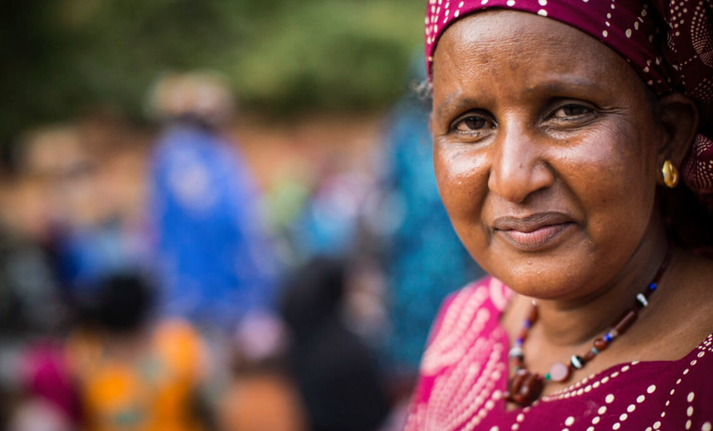Something strange is happening within the complexities of Brazilian foreign policy. There is a sense that, despite high expectations regarding gender issues, some debates simply do not take off or fade due to a lack of political will. This is the case with the Women, Peace and Security (WPS) agenda of the United Nations Security Council. It is curious that a large part of the Brazilian population, including government and civil society actors, is completely unaware of what the agenda is, what it is for and the importance and quality of this agenda.
For those who are unfamiliar, the WPS agenda emphasizes the importance of including women in spaces long dominated by men, such as conflict resolution and peacebuilding. Resolution 1325 (2000) was the first to highlight the need for women to play an active role, as well as promote actions to prevent and protect against violence and to advocate for the inclusion of gender perspectives in disarmament and security policies. States can and should develop national policies to translate these objectives into their local realities.
In 2017, Brazil launched its first National Action Plan on Women, Peace and Security—Plano Nacional de Ação (PNA) sobre Mulheres, Paz e Segurança—with limited progress. In 2023, the country began the process of drafting a second, more ambitious PNA, presented as “Stage I” during Brazil’s presidency of the Security Council. However, this document lacks details about who is responsible, deadlines, citizen participation and the budget. It is not an exaggeration to say that we are witnessing a lack of clear objectives, transparency, accountability, involvement of civil society and academia, as well as other international bodies, which were present during the development of the first PNA.
It is intriguing that these processes go unnoticed by politicians and society, especially considering the recent efforts of Lula’s government on measures related to the WPS agenda and the PNAs. In September, Lula approved the voluntary enlistment of women in the military, impacting their representation in the Armed Forces. However, this unprecedented measure was introduced without any connection to the WPS agenda or the existing plans, highlighting a disconnection between government actions and established policies. The silence surrounding the WPS agenda in Brazil is so deafening that, in May, the CEDAW Committee expressed concern over the lack of progress on the second PNA, particularly in the context of territorial conflicts and the environmental crisis, topics addressed in this agenda.
Commitment to the WPS agenda and the preparation of the PNA offer significant opportunities for Brazil on the international stage, especially during its presidency of the United Nations Peacebuilding Commission (PBC). However, since taking office, the country has missed valuable opportunities to link its efforts to the published PNAs. Today, 108 UN member states have adopted the PNA and recognize its importance for stability, security and prosperity. This growing trend suggests a lasting commitment, not a passing trend. If Brazil intends to reaffirm its commitment to gender equality as a crucial element for peace, both internationally and nationally, why is there so little information about its actions in this field?
If the country continues to neglect the WPS agenda, two losses are anticipated: first, the weakening of the process initiated with the first PNA. The obstacles to producing a second, more comprehensive document that aligns with Brazil’s needs indicate a lack of political will for an agenda that addresses crucial issues like gender, race, insecurity and climate change. Secondly, it impacts the image Brazil projects regionally and internationally. These failures undermine the country’s position on issues fundamental to the current government.
The urgency of addressing issues like sexual violence, refugees, Indigenous peoples, human trafficking, climate change and pandemics has led countries like Germany, Canada, Guatemala, the United Kingdom, Uruguay and El Salvador to adopt the PNA with specific measures. These decisions reflect public commitments to rethink international processes with intersectional and inclusive gender perspectives. Brazil, however, remains in a secondary role in these debates, despite the grave situation of women in the country and the expectation of greater Brazilian leadership. This stance contradicts the national reality and international expectations regarding Brazil’s leadership on these crucial issues.
The numbers do not lie. Brazil ranks fifth in the world for the highest number of femicides. Data from the Igarapé Institute show a 167% increase in the number of femicides of Indigenous women between 2000 and 2020. We also hold the distinction of being the second country with the highest number of murders of human rights defenders. Additionally, 51% of defenders living in the Amazon reported experiencing violence, according to a survey by the Igarapé Institute. This is not surprising. After all, in 2023 alone, the Pastoral Land Commission identified 2,203 land conflicts in the country.
At a time when we should be actively discussing in academic and political circles how to use a second PNA to combat these multiple forms of violence, it seems that bureaucratic processes are numerous, to the point where steps toward its publication and implementation are few and slow. It is important to note that PNAs do not replace other national policies. As strategic planning tools, they offer states the possibility to coordinate activities and monitor implementation results in a coherent and cohesive manner.
The current context is ripe for Brazil to demonstrate its understanding and contribute to advancing the WPS agenda. With its recognized performance in multilateral forums, the country can strengthen its leadership through an innovative second PNA, serving as a model in regional and global forums. This is an opportunity to show that, despite alarming data, there is interest and political motivation for decisions that move the country toward a more inclusive gender discussion. This moment allows Brazil to reaffirm its commitment and leadership on gender and international security issues.














